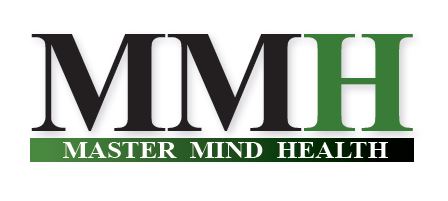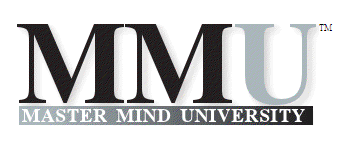
👉 Get Rid of Toxins from the Field of Master Mind Health (MMH) 🌱
Shared from the research of: Joseph Mercado 🙂
Article Author: Kiara Anthony 👩
Content Contributor: Health Line 🌎
Blog Post #1204 📌
Re: Detoxifying Copper 👈
Date and Time: Tuesday, February 22, 2022 at 11:13 a.m. ⏰
Dear Health Lover,
Heavy Metal Detox Diet:
- Symptoms
- Diet
- Outlook
What is heavy metal poisoning?
Heavy metal poisoning is the accumulation of various heavy metals in your body.
Environmental and industrial factors expose you to high levels of heavy metals every day, including the foods you eat and air you breathe.
Some of these metals — such as zinc, copper, and iron — are good for you in small amounts.
But overexposure can lead to heavy metal poisoning, such as what occurs in Wilson’s disease. This can be fatal.
Depending on your level of exposure, medications given intravenously under medical supervision can remove these toxins.
These medications bind to the metals, a process called chelation.
You doctor will test your blood, urine, and hair to measure metals toxicity.
In addition to chelation, you might consider a natural complementary therapy, such as a “heavy metal detox.”
However, most of these treatments aren’t backed by research.
There are some dietary options which incorporate foods that electrically attract metal to help move it out of your body, though.
Symptoms of Heavy Metal Poisoning:
Long-term exposure to metals can be toxic, causing harmful side effects that range from headaches to organ damage.
It’s important that you seek medical treatment if you have heavy metal toxicity.
Symptoms of heavy metal toxicity vary depending on the type of metal you’re overexposed to.
Mercury, lead, arsenic and cadmium are some of the more common overexposed metals.
Acute symptoms associated with these metals include:
- Headaches
- Abdominal Pain and Cramping
- Nausea
- Vomiting
- Diarrhea
- Fatigue
- Difficulty Breathing
In more severe cases of chronic heavy metal poisoning, you may experience symptoms including:
- Burning and Tingling Sensations
- Chronic Infections
- Brain fog
- Visual Disturbances
- Insomnia
- Paralysis
Good and bad foods for heavy metal exposure:
Many people get a buildup of heavy metals in their system because of the foods they eat.
Some studies suggest you can prevent overexposure to these toxins by avoiding certain foods.
Eating other foods known for taking heavy metals out of the system may also help.
Let’s take a look at the research.
Foods to Eat:
Some foods can help you detoxify by getting rid of heavy metals from your body.
These foods bind to the metalsTrusted Source and remove them in the digestive process.
Eating foods high in vitamins and minerals can have protective effects for those exposed to heavy metals.
Heavy metal detox foods to eat include:
- Cilantro
- Garlic
- Wild blueberries
- Lemon water
- Spirulina
- Chlorella
- Barley grass juice powder
- Atlantic dulse
- Curry
- Green tea
- Tomatoes
- Probiotics
Also, if you aren’t getting the recommended daily intake of vitamins, consider taking supplements.
Vitamin B, B-6, and C deficiencies are associated withTrusted Source poor tolerance of heavy metals and easier toxicity.
Vitamin C has been reported to have chelating effects on iron. In one animal study, B-1 supplements were shown to decrease iron levels.
The U.S. Food and Drug Administration doesn’t monitor the purity or quality of supplements like they do for drugs.
Also talk to your doctor before trying a supplement to make sure it won’t interact with any medications you’re currently taking.
Foods to Avoid:
An effective heavy metal detox includes more than incorporating healthy fruits and vegetables.
To minimize the effects of heavy metal poisoning or prevent it altogether, you need to eliminate some foods from your diet.
This is especially true for processed foods and excess fats.
These foods have minimal nutritional value and slow down the detox process.
This is because fats tend to soak up the harmful substances you want to remove.
Some foods to limit or avoid in your heavy metal detox diet include:
- Rice (brown rice, specifically) because it often contains arsenic
- Some fish, such as larger and long-living fish, as they tend to contain more mercury
- Alcohol
- And non-organic foods
Outlook for this condition:
Heavy metal poisoning can trigger a number of harmful side effects.
If left untreated, it can be life-threatening.
Follow through with any recommended medical treatment.
Talk to your doctor about how dietary changes can help protect you from heavy metal overexposure.
It takes time to detox and safely remove metal toxicity from your body, but it’s possible.
Before participating in the heavy metal detox diet, consult with your doctor or dietician to discuss your options.
Content Source: Health Line
 Email Us a Message
Email Us a Message 

Please send us a personal message below and we will serve you momentarily.
We appreciate you visiting the MMU Global Research Directory
For more blog posts, videos, articles, and to generate more knowledge, please feel free and…






 Fly Over to the MMU Facebook Page with Hoot
Fly Over to the MMU Facebook Page with Hoot
 Visit the MMU Facebook Group Today
Visit the MMU Facebook Group Today